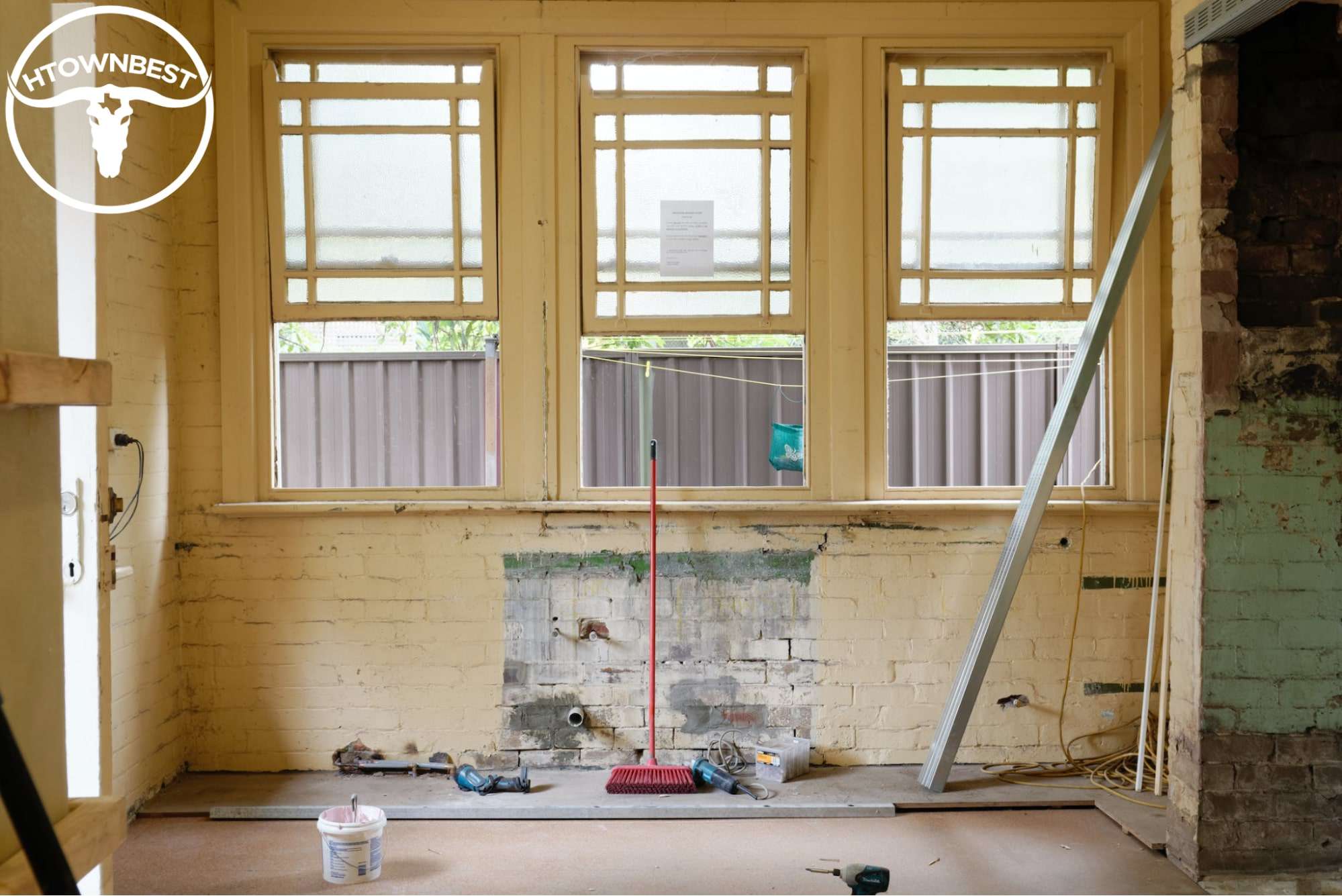Do I need permits to replace windows in Houston?

- Do I need a permit to replace windows in Houston?
- Types of Residential Construction Projects Requiring Permits
- Repairs and Renovations
- Building New Structures
- Other Construction Projects
- Steps to Obtain Permits for Residential Repairs
- Step 1: Design Requirements
- Step 2: Application Process for Permits
- Requirements for Common Projects
- Building Permit Exemptions
- Consequences of Not Obtaining Permits for Residential Repairs
Are you eyeing a new summer project like a new hardwood patio or a nifty shed out back to store your tools, but not sure if you’ll need permits for your projects in Houston?
Explore the world of residential renovations with us and stay in the know.
A building permit is required for most residential projects inside the city of Houston including, but not limited to construction work on new or existing buildings, remodeling (except painting, wallpapering) and repair work.
Do I need a permit to replace windows in Houston?
If you are just replacing a window, you don’t need a permit to do it in Houston. But if your replacement window calls for an alteration of the structure of the window frame or if the window is on a low-bearing wall, then you’ll need a permit.
Whether you need a permit or not for common residential renovations can differ depending on the situation, so we’ve provided some general guidelines that will make the progress of your projects a bit smoother.
Types of Residential Construction Projects Requiring Permits
Repairs and Renovations

Construction involving the replacement or repair of existing parts or portions of a building like windows require a residential repairs permit.
A residential remodeling permit is needed for the reconstruction of any home or residential structural accessories, remodeling, the conversion of any existing structures or building additions like sheds and patios.
While, a residential roofing permit is required to relay or redo the roof of any home.
Building New Structures

Building of any new residential accessory structures, like garages, decks, and larger patios require a residential addition permit.
Any fence built using any material more than 8 feet above ground requires a permit. Concrete or brick fences, whether partly or fully built using these materials, need a residential fencing permit no matter the height.
A residential landscaping permit must be obtained first before any new major landscaping and terrain reshaping is done to your home.
Residential driveway, sidewalk, or curb & gutter permits are required for any repairs or replacements done on portions or the whole of existing sidewalks; except if the sidewalk is bound within property lines or doesn’t include any part of the driveway.
Other Construction Projects

Installation of any duct ventilation for residential use, regardless of location within the home needs a residential ventilation permit.
A residential demolition permit must be secure first before the demolition of any structures or building attached or within your home.
Steps to Obtain Permits for Residential Repairs

Step 1: Design Requirements

You will need to define the scope of work to know which type of project you’re undertaking and later on, how to proceed. Here are the main kinds of construction projects for residences.
- New Construction – Construction of any structure from the ground up or changes/ additions to the foundation of the home.
- Addition – Any square-footage adding projects
- Remodel – Altering or changing any existing building
- Repair – Any replacement of components or structures (“like for like”)
Replacing windows would fall under the “repair” category,
Step 2: Application Process for Permits

Below are the detailed steps of applying for a residential repair or renovation permit in Houston.
- The Electronic Building Permit Application must be accomplished by the applicants on the Houston Permitting Center Website or by calling their office. You can also reach out to the permitting center using the details below.
| Address | 1002 Washington Avenue, Houston, TX 77002 |
| Contact Information | +1 832 394 9000 |
| Social Media | Facebook, Youtube, Twitter |
| Website | https://www.houstonpermittingcenter.org/our-services/eservices |
- The applicant must also fill out a Residential Repair Spec List.
- A Declaration In Support of Application For City of Houston Building Permit must be completed by the owner to verify if the proposed project is within the deed restrictions.
- The address of a new construction project has to be verified at the Building Code Enforcement Office for new construction. You can contact them at + 1-832-394. -8810. The application can also be done online, through the Houston Permitting Center.
- Majority of construction-related projects require a plan review fee (25% of total permit fee) to be paid by the applicant.
- Wait for a Project Number to be automatically generated by the website.
Requirements for Common Projects

Since every project is different, each will require a different set of requirements, but in general, listed below are the most commonly asked for requirements and documents for permit applications.
- Online Building Permit Application (iPermits)
- Declaration in Support of Building Permit Application (Individual or Business Entity)
- Design Plans which must:
- Be in compliance with the 2015 International Energy Conservation Code
- Include a ResCheck or IC3 Compliance Report.
- Grading and Fill Worksheet (CE-1094)

Additional requirements vary depending on the type of project you’ll undertake. Here are separate ones for each particular kind of project.
- Remodeling Requirements:
- Floor plan of existing building with detailed portion of target area
- Material list
- Details of bearing and non-load bearing walls on affected wall section
- Repairs Requirements:
- A Repair Spec detailing the work done to the following if applicable:
- Siding, doors, windows, trim, stairs, porch, fireplace
- Roofing, ceiling, walls, insulation
For more complicated projects or projects with more than one goal, you can check out the Residential One-Stop Guideline for more information.
Building Permit Exemptions

Permits are not required for the following:
- A detached residential accessory if it’s only one-story and doesn’t exceed 120 square feet.
- Fences if they’re below 8 feet high, aren’t built using bricks or concrete, or not electrical.
- Retaining walls if they aren’t over 4 feet or supporting a surcharge.
- Water tanks if their capacity is below 5,000 gallons and the height to diameter or width ratio is less than 2 to 1.
- Flat wood decks if they’re no more than 30 inches above ground and 200 feet in area.
- Minor repair and maintenance:
- Finish work: Painting, tarping, wallpapering, tiling, carpeting, cabinets, and repairing, or replacing countertops
- Gypsum board (sheetrock or drywall) repair on existing walls of less than 100 square feet and not part of fire-related assembly
- Repair of exterior wood facing, trim and soffits with a total surface area of less than 128 square feet
- Roof work with an affected area of less than 100 square feet.
- Minor home playground equipment setups lower than 12-feet.
- Window awnings if they don’t extend more than 54 inches from the exterior wall and don’t need additional support.
For a more comprehensive list, you can czech out Section R105.2 of the Houston Amendments to the 2015 IRC.
Consequences of Not Obtaining Permits for Residential Repairs

You Lose your Insurance!
Work done to your home without the proper permits could leave your homeowner’s insurance void. Your insurance company most likely won’t cover damages or injuries caused by the unpermitted work.
You get fined!
The local building department could tell you to stop and give you a daily fine of $500 or more. To make matters worse, if you don’t pay up, your county might even put a lien on your home.
You go back to square one!
Your local building department might tell you to tear down the work you’ve done. And if a home inspector finds any risks of danger to your house, the county could make you destroy the whole project or fork out the money to get a professional to fix it up correctly.
You add costs to your house instead of adding value!
Improvement projects increase the value of your home, but doing them without a permit has the opposite effect. Adding anything without a permit doesn’t legally add value to your home. And, when you try to sell, you’ll be asked to pay all outstanding fines first.





